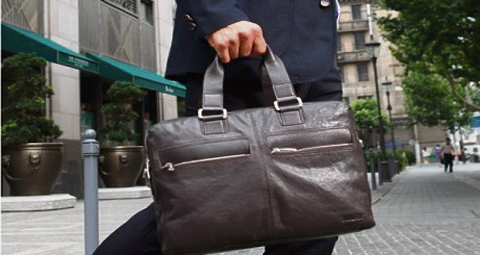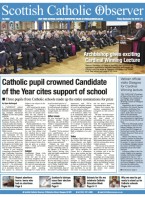August 3 | ![]() 0 COMMENTS
0 COMMENTS ![]() print
print

A lesson in contingency
Ronald Rolheiser
If only. How often we feel those bitter words of regret: If only. If only I had noticed earlier. If only I had been more attentive. If only I could see that person again, even for five minutes. If only I hadn’t been there just then. If only the storm hadn’t happened just as I was on the motorway. If only I hadn’t had that extra drink. If only I had left the party ten minutes earlier. If only.
We all live with certain regrets and the bitter knowledge that if only we had been more attentive or patient or courageous or loving at a given moment our lives would now be very different. If only we could have certain moments of our lives back, to do over differently.
I had such one such moment recently. It wasn’t one that in the grand scheme of things was very huge, but it did in its own small way contain all the dynamics of the bitter regret that we feel when we say: If only.
What happened? I had my briefcase—containing passport, green card, laptop, two years of personal diaries and planned agendas, and numerous other personal papers and photos—stolen from me as I was buying a subway ticket in the London Underground. I am an experienced traveller and tend to be paranoid in terms of keeping vigilance on my luggage but as anyone who has ever lost a purse or a briefcase—or, infinitely more tragic, a child—in a public place knows, it only takes a few seconds of inattention for disaster to strike.
In my case, it happened this way: I had just got off a train after speaking at a conference and, shepherding three pieces of luggage, made my way down an escalator to the underground. I was trying to purchase a ticket for the subway and the self-service machine was not being particularly cooperative and that little distraction, for a period of perhaps one minute, was all it took: I briefly forgot about my luggage. When I looked down to pick it up, my briefcase was gone. It took an instant to realise what had happened and as I ran to get a security guard my heart sank in the sick recognition that it was too late, I would never see the contents of that briefcase again. As I sat with the police, making a report of the incident, I kept involuntarily repeating to myself: If only. If only I hadn’t lost my concentration. If only I had kept my passport and green card on my person. If only I could rewind the last ten minutes of my life. If only.
We have all been there, in ways big and small.
What is the lesson? What might I— or anyone else—learn from moments like these?
First of all, we need to learn to keep things in perspective. Sometimes a moment of carelessness has huge, irrevocable consequences, as in the loss of a child or a serious accident that causes a death; but for me it meant only the loss of some personal effects, some money, and the loss of the better part of two days (spent in Embassies recouping my passport and Green-card). It was an irritating inconvenience, which in the grand scheme of things is, in essence, a mosquito-bite. When I come to die, I doubt this incident will be remembered. But that is not easy to see at the time. In the moment it’s easy to lose perspective.
Second, incidents like this are meant to teach patience. Haste makes waste. It also makes for momentary carelessness and accidents. This happened to me because I was in a hurry. I had wanted to buy my ticket at the customer-counter, but there was a line-up and, although I had no pressing agenda, I was too impatient to wait in the line-up. I was trying to save five minutes and that impatience ended up costing me, among other things, the better part of two days of lining up at Embassies and Immigration offices. Hopefully the lesson will be learned.
Finally, incidents like this are meant to teach us to recognise and forgive contingency. Philosophically, contingency means that, unlike God who is self-sufficient and perfect, we live with limit and imperfection. For us, every one of us, there will be moments of inattention, carelessness, accidents, stupid impatience, and moral lapses. The philosopher, Leibnitz, famously stated that we don’t live in the best of all possible universes.
Thus, there will always be lost purses, stolen briefcases, broken heirlooms, and, much worse, tragic accidents that result in lost children and lost lives. Sometimes too there will be moments of moral carelessness that we will also bitterly regret. We are not God. We are contingent.
So the next time someone accidentally drops and breaks your priceless vase, don’t respond with that chastising frown that says: How can you be so clumsy? What an awful thing you’ve done. Instead, make old Leibnitz proud, give off a knowing smile that says: Now there’s contingency for you.










